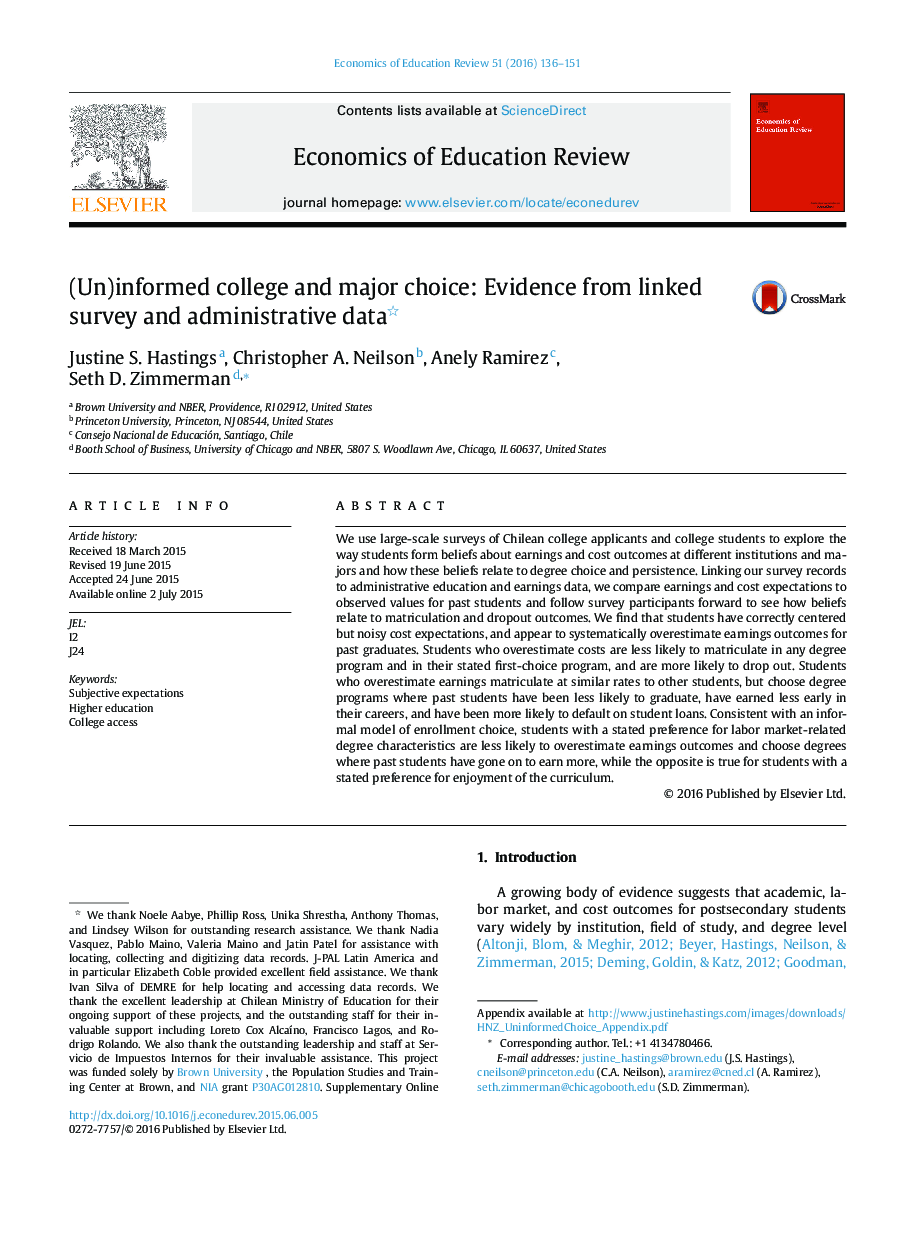| کد مقاله | کد نشریه | سال انتشار | مقاله انگلیسی | نسخه تمام متن |
|---|---|---|---|---|
| 354298 | 1434812 | 2016 | 16 صفحه PDF | دانلود رایگان |
• We conduct large-scale surveys of college applicants and college students in Chile.
• We elicit students’ major- and institution-specific beliefs, preferences, and information sources.
• Students who overestimate costs are less likely to matriculate; more likely to drop out.
• Students who overestimate earnings enroll in programs with worse outcomes for past students.
• Stated preferences for degree characteristics predict accuracy of beliefs, program choice.
We use large-scale surveys of Chilean college applicants and college students to explore the way students form beliefs about earnings and cost outcomes at different institutions and majors and how these beliefs relate to degree choice and persistence. Linking our survey records to administrative education and earnings data, we compare earnings and cost expectations to observed values for past students and follow survey participants forward to see how beliefs relate to matriculation and dropout outcomes. We find that students have correctly centered but noisy cost expectations, and appear to systematically overestimate earnings outcomes for past graduates. Students who overestimate costs are less likely to matriculate in any degree program and in their stated first-choice program, and are more likely to drop out. Students who overestimate earnings matriculate at similar rates to other students, but choose degree programs where past students have been less likely to graduate, have earned less early in their careers, and have been more likely to default on student loans. Consistent with an informal model of enrollment choice, students with a stated preference for labor market-related degree characteristics are less likely to overestimate earnings outcomes and choose degrees where past students have gone on to earn more, while the opposite is true for students with a stated preference for enjoyment of the curriculum.
Journal: Economics of Education Review - Volume 51, April 2016, Pages 136–151
